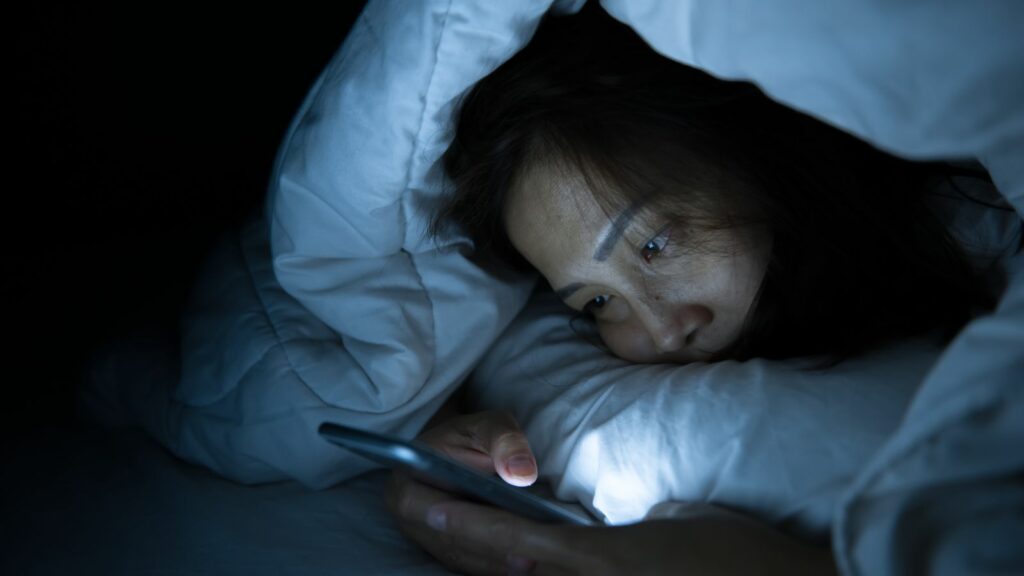Life has evolved rapidly in a short period. Things are changing at a much faster pace compared to our ancestors’ time. Modernization has brought many comforts with new inventions and technologies. One such invention is the smartphone, which has a significant impact on our everyday lives. Whether in our personal or professional lives, smartphones play a major role. Whenever we talk about something impactful, it always has a dark side. The dark side of smartphone use is vast, affecting us in many ways. One very important thing impacted by smartphone use is our sleep. How this is happening is discussed below.
Blue Light Emission
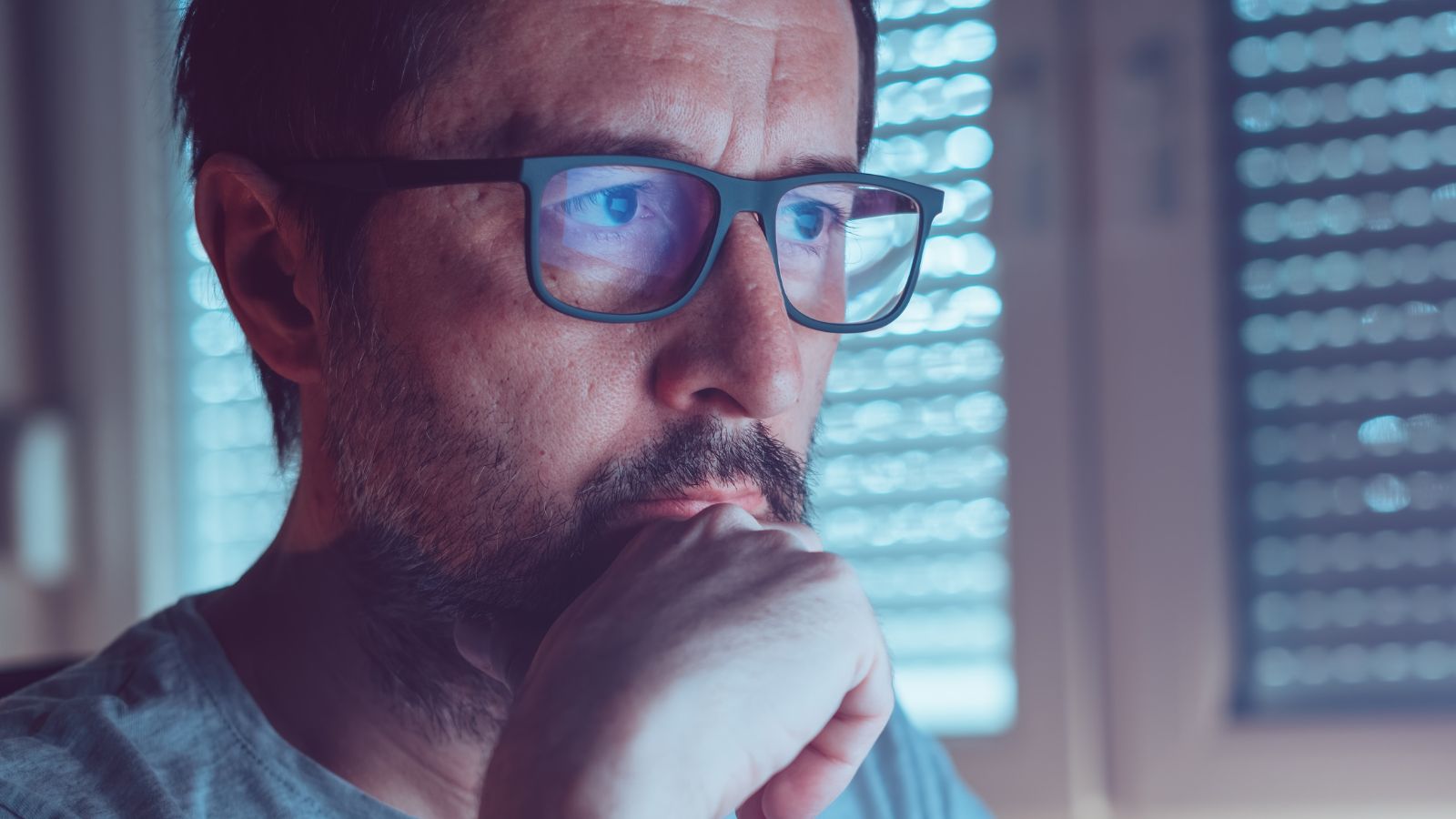
The use of smartphones is widespread, from connectivity and work to entertainment and shopping. Everything is online, and a smartphone is just a click away from accessing the world. But this leads to excessive use, which has many harmful effects, particularly on our eyes. The blue light emitted from the screen affects our whole body, disrupting the production of melatonin, a hormone required to relax the body and prepare it for sleep.
Before Bed Screen Time
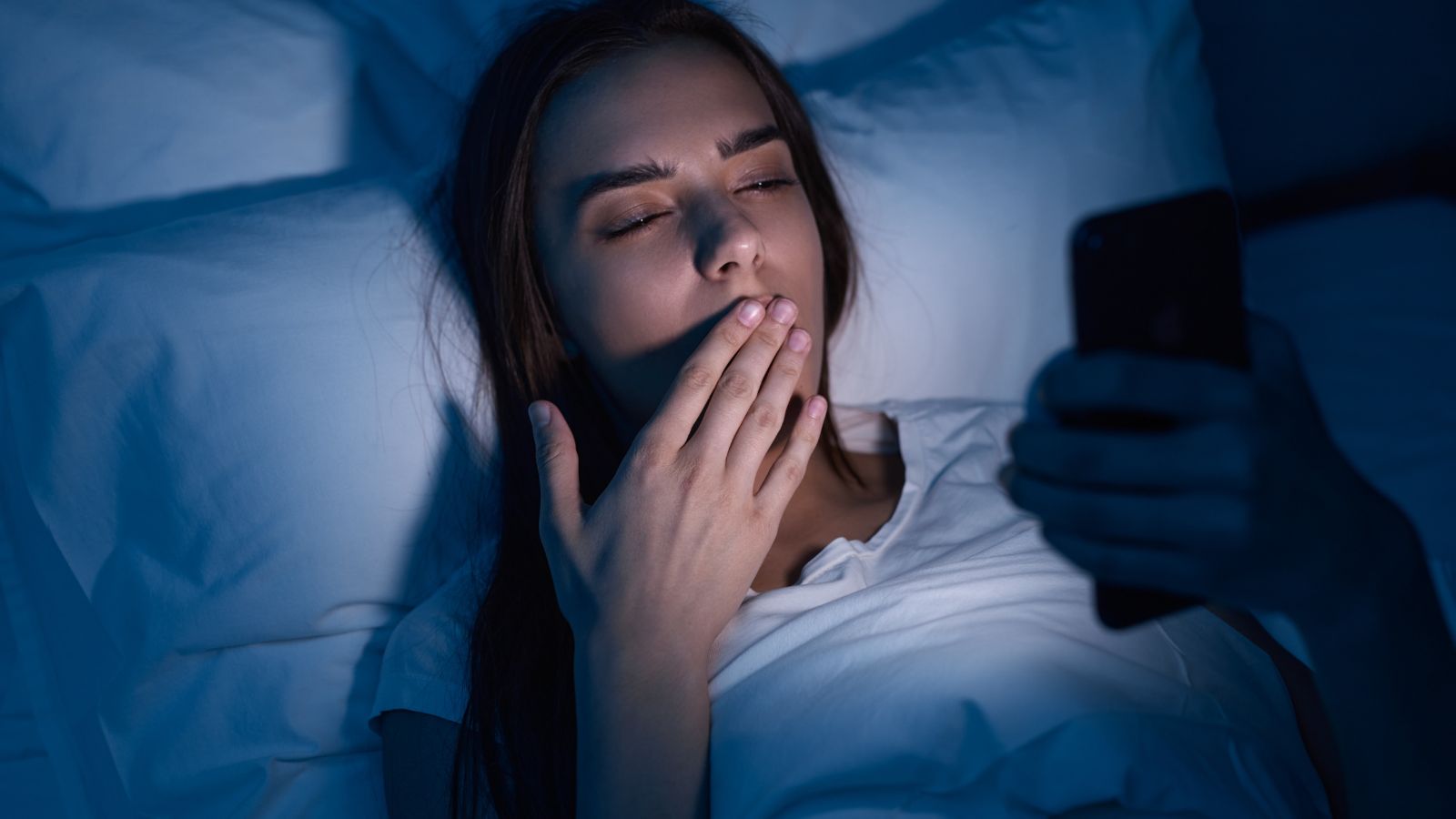
Using a smartphone before bedtime has become a new ritual, affecting people of all ages. Exposure to blue light right before bed makes it difficult to fall asleep and affects sleep quality. Nowadays, this time of night, right before sleep, is proudly called “me time,” but it’s damaging our health.
Sleep-Wake Cycle

The overwhelming use of screens, whether for work or entertainment, has devastating effects on society as a whole. It adversely affects our health by disrupting the sleep-wake cycle. Many people complain about feeling overly active at night and sleepy during the day, which is often due to excessive screen use, particularly from smartphones.
Stress and Anxiety

Sleep and stress are indirectly proportional to each other. When one increases, the other decreases. More stress leads to less sleep. Live news streaming, constant notifications, and messages cause the brain to stay on high alert, making it difficult to sleep and increasing stress and anxiety.
FOMO (Fear of Missing Out)

New technologies bring new challenges. FOMO, a psychological condition, heightens anxiety while scrolling through social media. Excessive scrolling leaves users feeling like they are missing out, which leads to endless scrolling and further delays sleep.
Sleep Delay
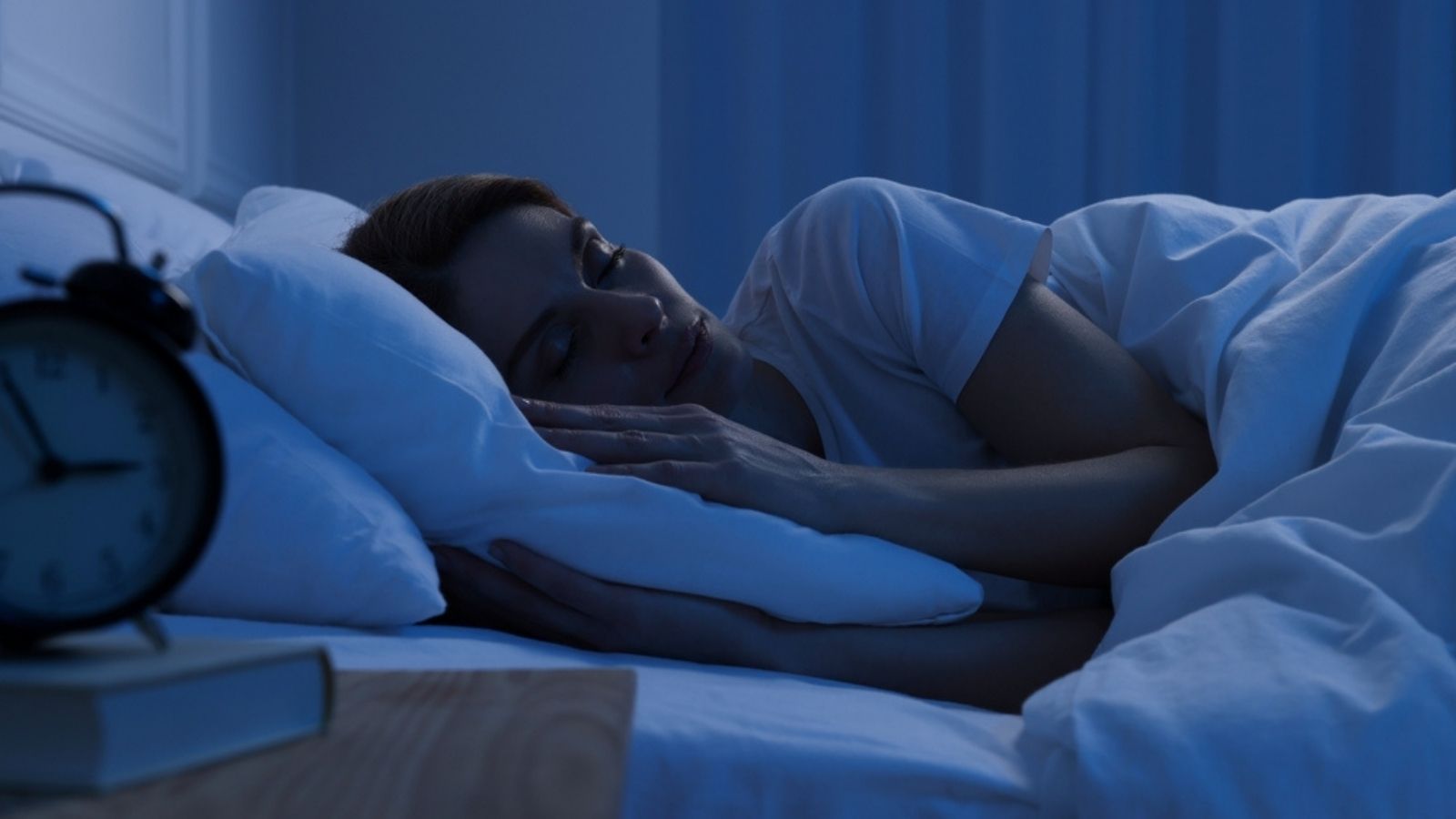
Social media platforms are designed to be highly engaging, which often results in extended screen time. This constant stimulation keeps the mind active and energized, filled with ideas and excitement—emotions that are the complete opposite of what the body and mind need to relax and prepare for sleep. As a result, falling asleep becomes much harder, delaying the natural process of winding down at night.
Effect on REM Sleep

REM sleep, or rapid eye movement sleep, is a crucial phase of rest that plays a key role in essential brain functions like memory consolidation, learning, and problem-solving. Overexposure to screens and blue light significantly disrupts this phase, impacting the brain’s ability to carry out these critical processes effectively.
Social Media Addiction
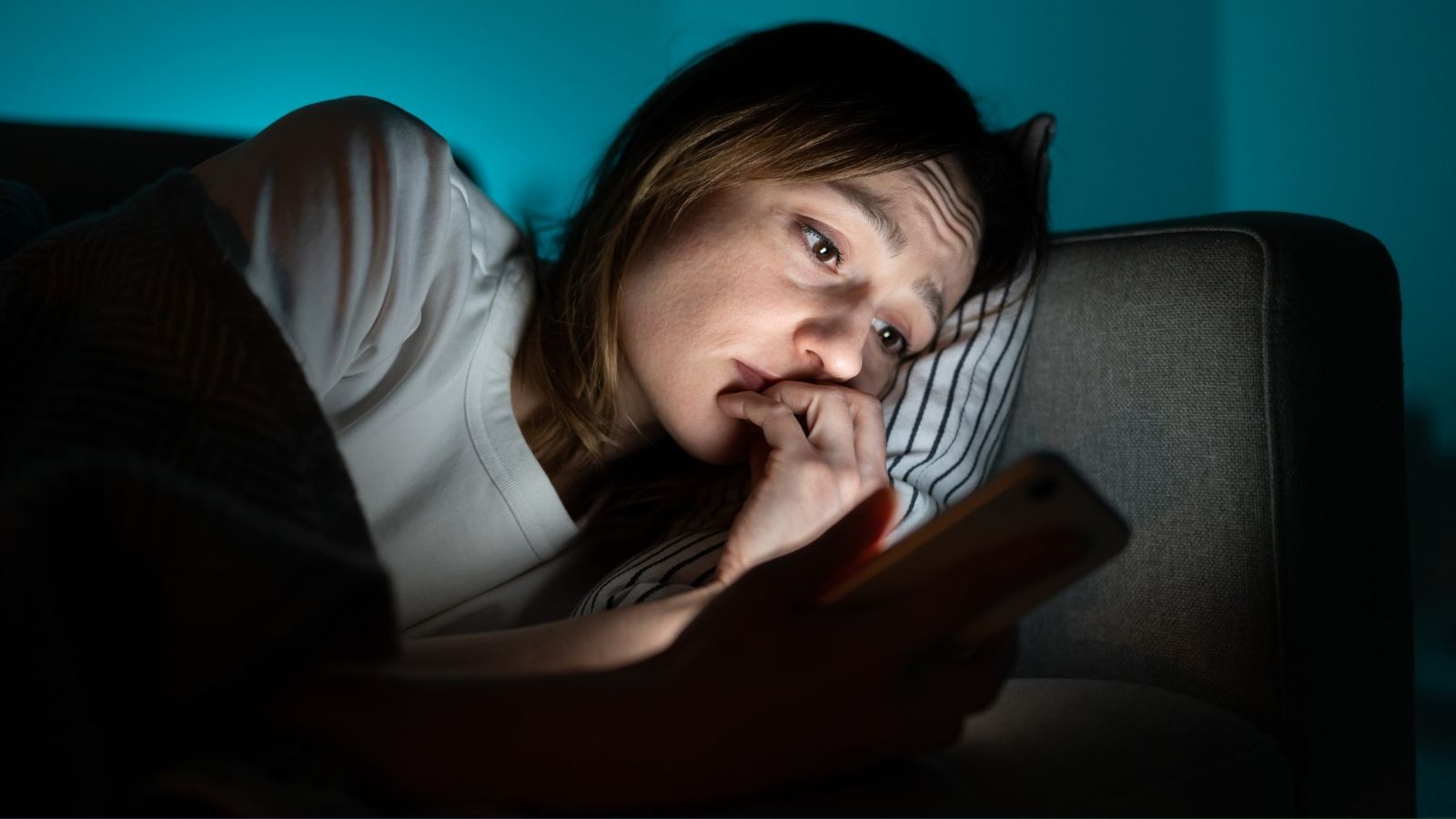
As the saying goes, too much of anything can be harmful. While smartphones are remarkable inventions that have transformed the way we live, their impact turns negative when used without moderation. Social media, in particular, can become addictive, leading people to spend excessive time on their devices. This lack of control over usage is what causes the most harm, affecting both mental health and daily life routines.
Premature Aging
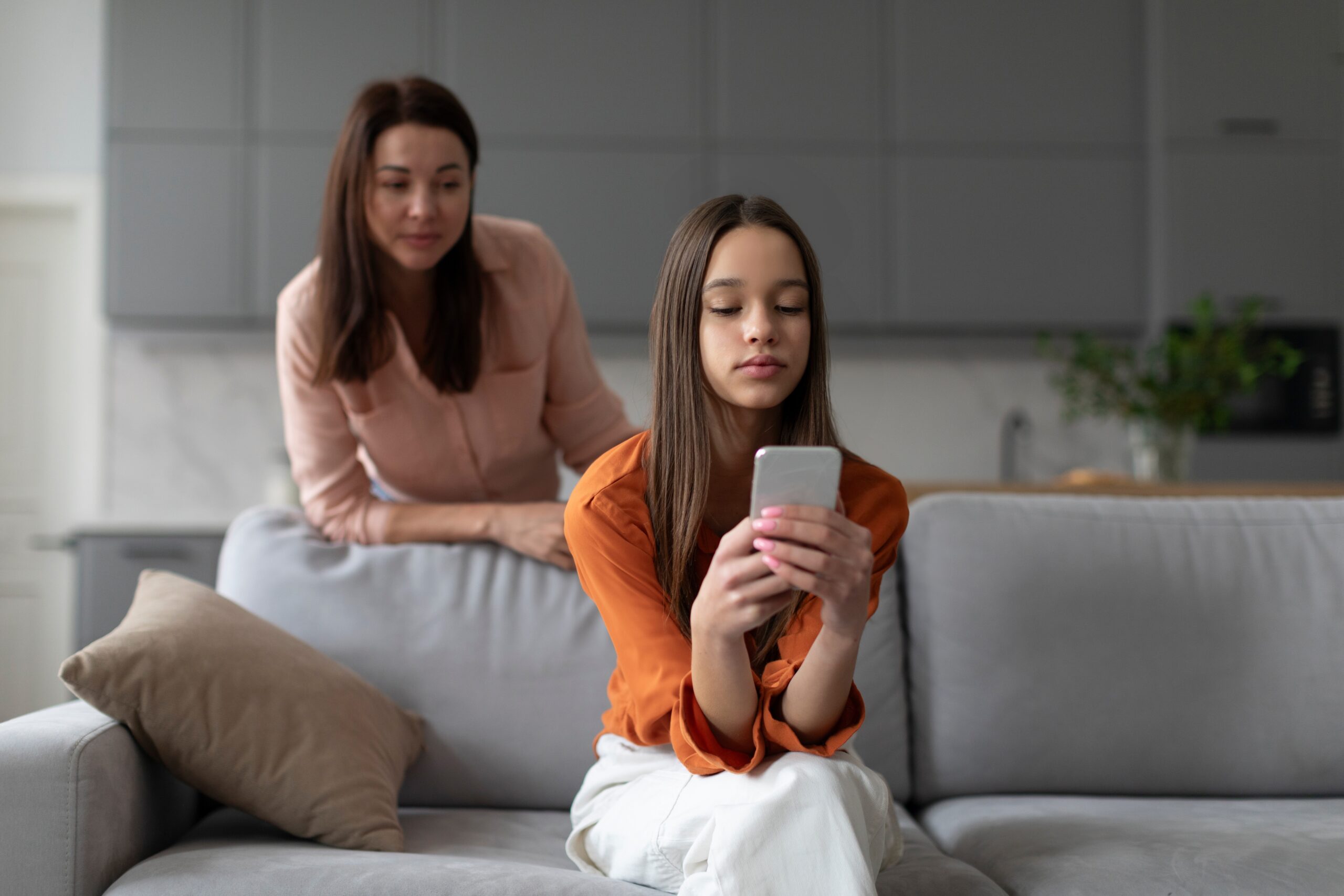
Certain factors are essential for human survival and well-being, and sound sleep is one of them. Poor and interrupted sleep can lead to numerous health issues, one of which is premature aging. This has become more common due to the declining quality of sleep caused by smartphone use.
Physical Discomfort

Posture plays an important role in our overall well-being. Whether sitting, standing, or lying down, maintaining proper posture is crucial. Unfortunately, the posture most people adopt while using their smartphones—often with a bent neck—leads to back and neck pain. This discomfort can prevent proper sleep, further aggravating the issue.
Compromised Sleeping Routine
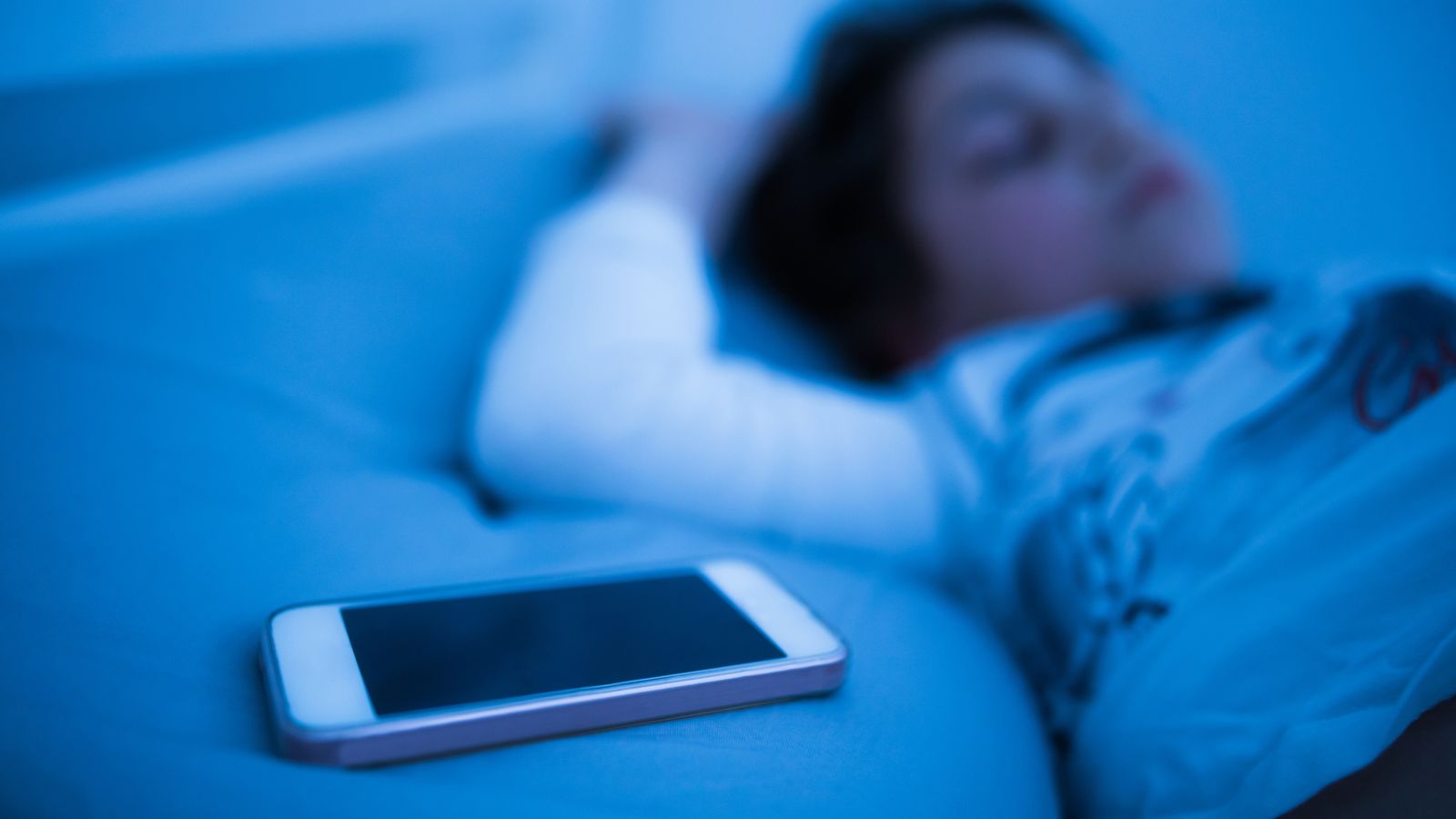
Smartphone use can be highly distracting, leading people to neglect daily activities due to its addictive nature. While sleep may seem routine, it is a process that requires preparation, like meditating, reading a book, or engaging in spiritual practices. These activities help relax the body in preparation for sleep. However, excessive smartphone use disrupts this routine.
Increased Risks of Sleeping Disorders

As technology advances with new gadgets and devices, life becomes more complicated for the average person. New technologies are leading to new health issues. Insomnia and sleep apnea are becoming more common due to prolonged exposure to blue light.
Compromised Mental Health

Excessive use of technology has become a major contributor to many mental health problems in today’s society. Prolonged exposure to blue light and extended screen time, especially from smartphones, are key factors that can trigger issues such as anxiety, depression, and stress. The constant stimulation from screens overwhelms the brain, making it harder to unwind and maintain mental well-being.
Disrupted Sleeping Aids

Many apps claim to help with meditation and relaxation before bed, promoting better sleep. However, the blue light from smartphones, along with unnecessary notifications and messages, undermines their effectiveness. As a result, these sleep aid apps are not as helpful as intended.
Disruption of a Healthy Sleep Environment
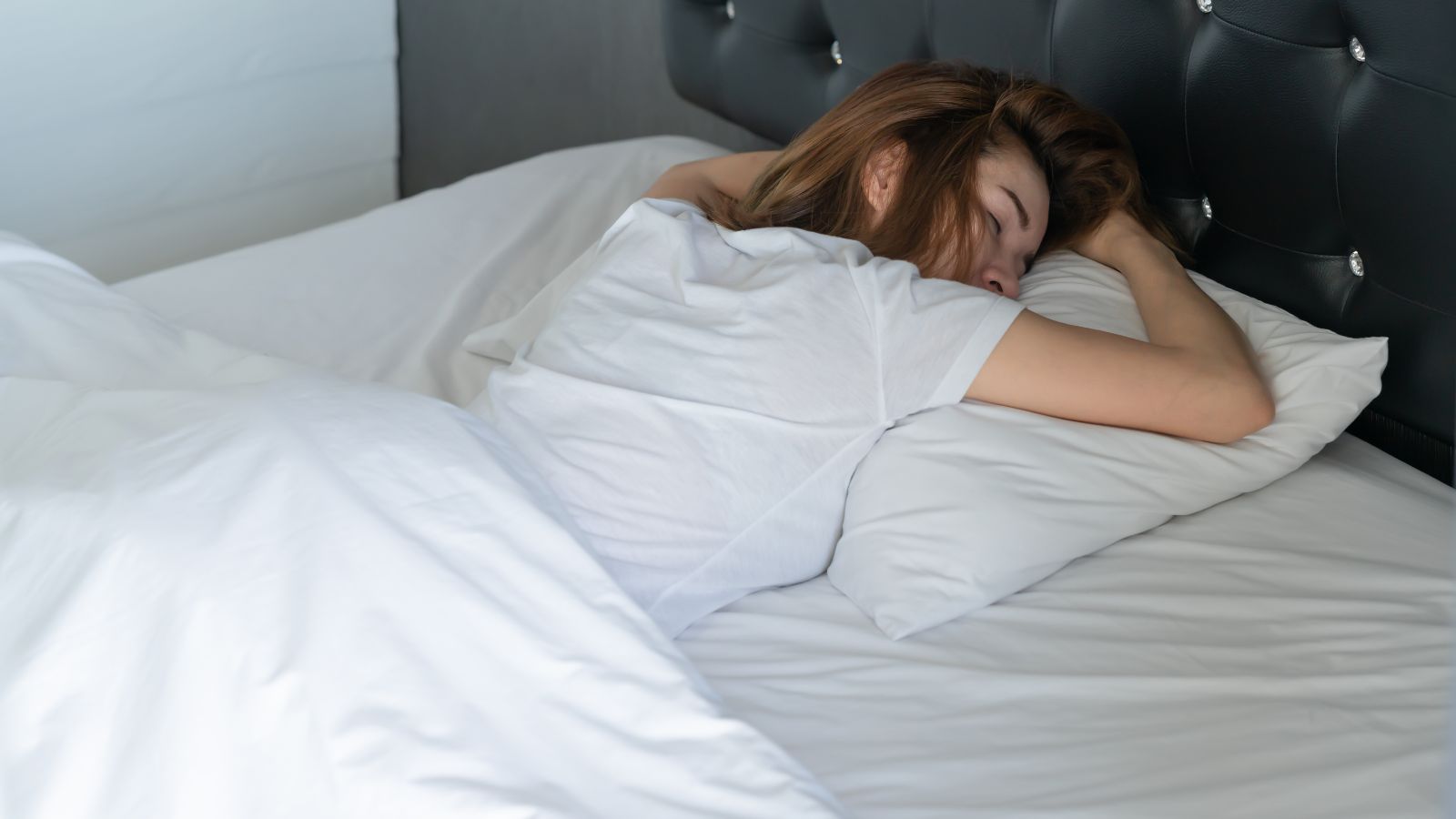
Recent research has shown that smartphones emit certain types of radiation, including radiofrequency, electromagnetic fields, microwaves, and extremely low-frequency radiation, even while we sleep. These radiations can negatively affect our health, particularly brain function, resulting in poor sleep and impaired cognitive abilities.
Envy and Jealousy-Induced Sleep Deprivation

Smartphones have turned the world into a global village, where fast communication and glimpses into others’ lives are just a click away. People frequently share their personal progress and glamorous lifestyles on social media, which can trigger feelings of envy and jealousy in many. These toxic emotions can lead to poor sleep.
Online Jobs and Side Hustles
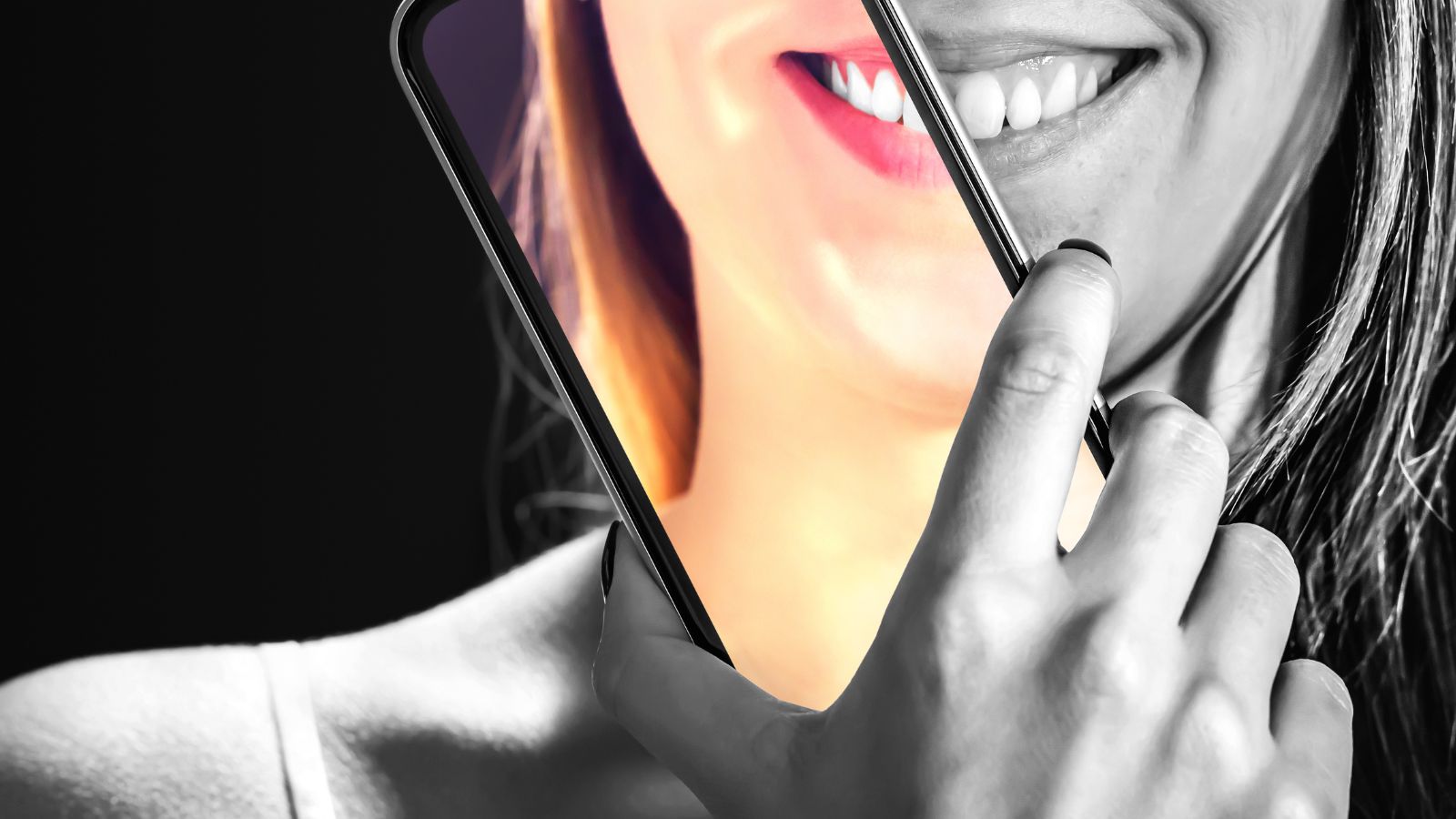
In today’s world, everyone is searching for an online job or side hustle to make ends meet. However, these side jobs often lead to extended screen time and blue light exposure, which in turn deteriorates health, with poor sleep being a major outcome.
Conclusion
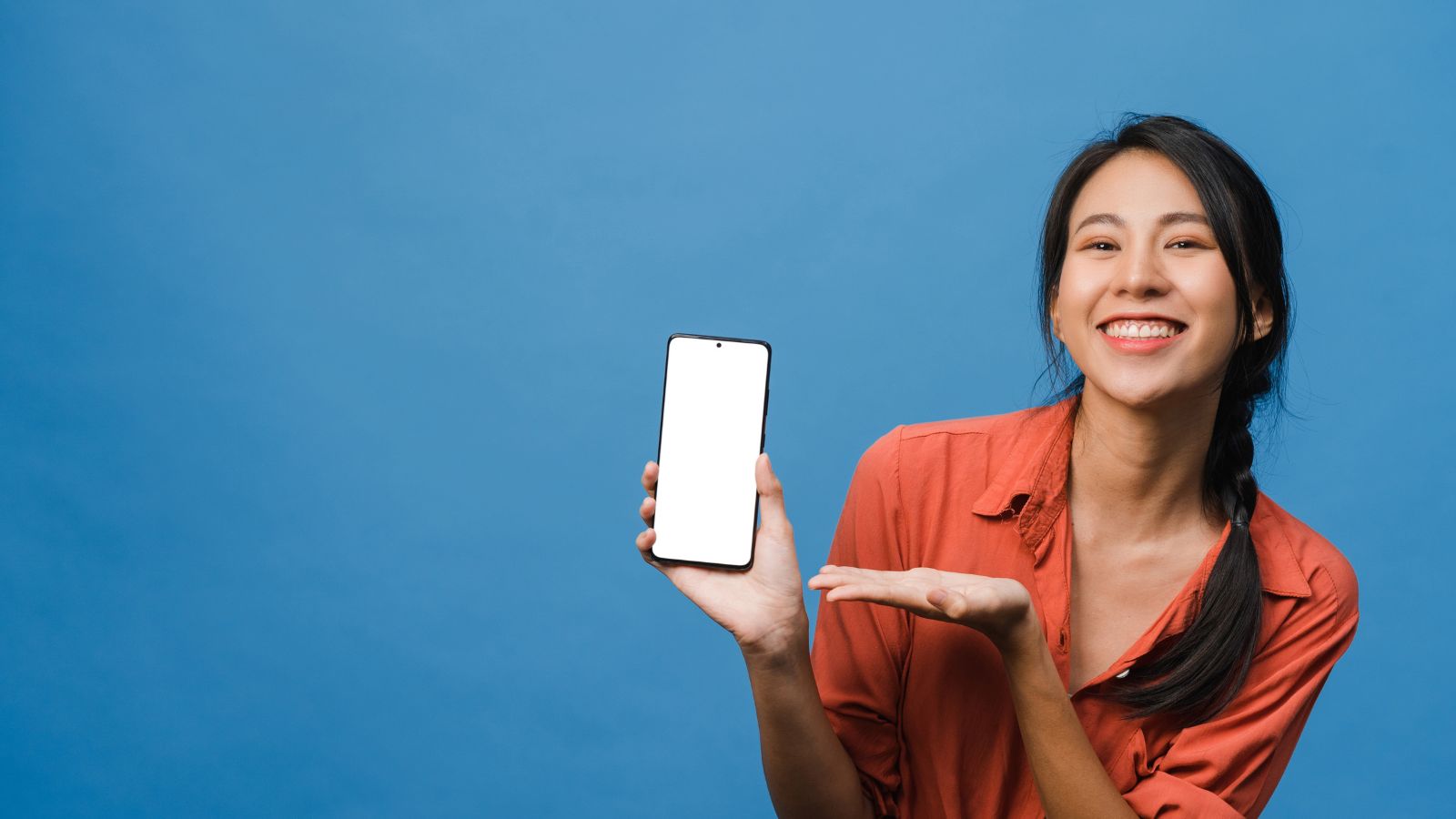
Everything in moderation is good, but excess often leads to negative outcomes. As the saying goes, “Health comes first,” because as long as you’re healthy, you can enjoy life. Keeping a close eye on your sleep patterns and quality is essential, whether it requires lifestyle changes, adjustments to your job, or cutting back on things that negatively affect you. Smartphones may have made the impossible possible, but their improper use needs to be controlled, especially when it comes to entertainment and so-called “me time.” To improve health and well-being, individuals should practice meditation, eat healthily, and reduce screen time to get better sleep.
18 Reasons Why People Are Leaving Florida in Masses

Exploring factors that impact the desirability of living in Florida, this list delves into various challenges shaping residents’ experiences. From environmental concerns like rising sea levels to economic factors such as fluctuating job markets, these issues collectively contribute to a nuanced understanding of the state’s appeal.
18 Reasons Why People Are Leaving Florida in Masses
